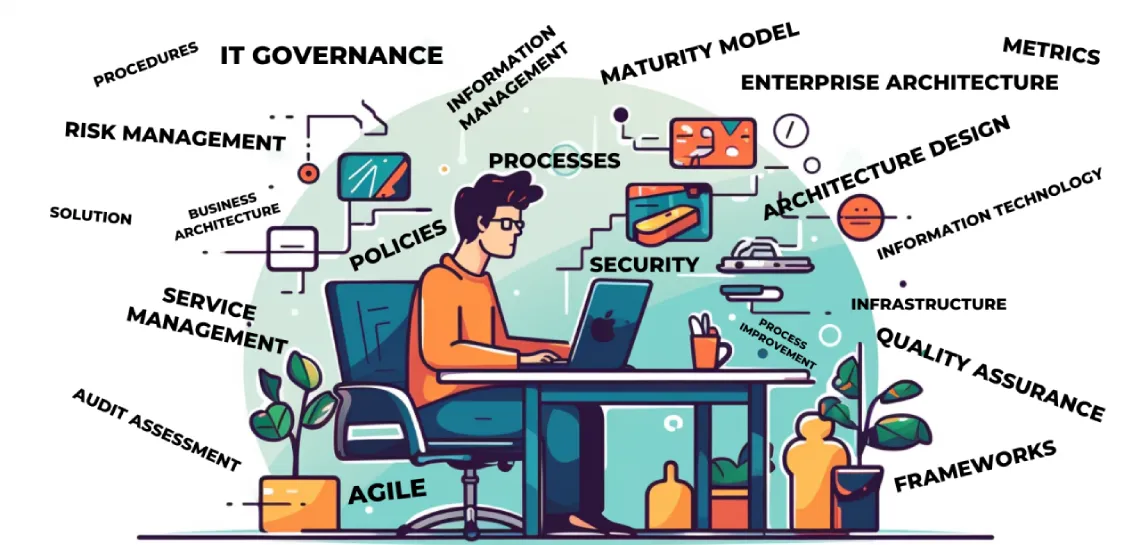Solution Architect: The ideal environment for your business
A Solution Architect is a specialist who acts as a bridge between the concept and implementation of technical systems. This role requires not only a deep understanding of technology, but also the ability to see the strategic picture of business processes to ensure effective problem solving.
"The solution architect is a key figure who ensures that technology meets the strategic requirements of the business. They not only design the system, but also support its adaptability and stability in the long term." - Serhiy Kasyanchuk, Solution Architect at Solidgate.
Solution Architects become an integral (part/feature) part of IT projects, as their vision and experience directly influence the success of the development. They work at the intersection of business and technology, transforming stakeholder needs into technical specifications and strategies that address both current and future challenges.
The role of a Solution Architect can be compared to the architect of a building, who not only carefully considers every corner of the structure, but also ensures that all elements work together harmoniously to create a sustainable and functional structure. They are also responsible for selecting technologies and approaches that best reflect the project's goals and technical requirements.
The modern Solution Architect must be a master of communication, because he has to interact with different teams and ensure the unity of the technical vision. In addition to technical experience, leadership qualities, strategic planning and analytical thinking are also important.
The tasks of the Solution Architect include not only the development of the architecture, but also the supervision of its implementation, the control of compliance with technical standards and best practices. Their work is a constant process of optimizing and adapting the system to meet changing market conditions and user needs.
To conclude this chapter, Solution Architects are the architects of change that lead companies through today's technical and business challenges to success. They are creators who turn business ideas into effective technical solutions that strengthen competitive advantages and contribute to the sustainable development of companies.
Differences between Solution, Enterprise and Software Architects
There are three key types of architects in the arsenal of the IT industry: Solution Architect, Enterprise Architect and Software Architect. Each of them deals with their niche and plays an important role in creating effective technical solutions.
| Role |
Responsibility |
Focus |
| Solution Architect |
Development of the architecture of specific solutions |
Solving problems at the project level |
| Enterprise Architect |
Defining the architecture of the entire organization |
Strategic planning at the company level |
| Software Architect |
Software architecture design |
Technical implementation at the product level |
Solution Architects focus on technical details and play a role between business needs and technical execution. They guarantee that each solution meets the individual project and its goals.
Enterprise Architects have a broader view because their job is to organize and optimize all of the company's IT systems. They consider long-term business strategies and ensure that technology reflects overall business goals.
Software Architects focus on the technical side of software, developing an architecture that defines the structure of the product, how its components interact, and how to ensure the quality of the code.
It is clear that each of these roles requires a specific set of skills and knowledge. But regardless of the role, architects are the foundation for building strong and efficient IT systems that can support the dynamics of today's business.
The importance of Solution Architects in modern business

The journey to becoming a Solution ArchitectIn today's dynamic business environment, Solution Architects play a key role, bridging the gap between a company's strategic goals and its technical implementation. Due to their in-depth knowledge of technical capabilities and business requirements, they are indispensable in the implementation of complex projects that require innovative solutions.
- In the case of financial institutions, Solution Architects developed systems to automate credit analysis, significantly reducing application processing time and increasing application accuracy.
- For retailers, an AI-based solution was implemented to personalize offers to customers, resulting in increased sales.
- In healthcare, Solution Architects have helped create integrated platforms that provide coordination of patient care between different physicians and healthcare facilities.
Their ability to analyze and integrate the latest technologies to solve specific business problems is an integral (part/characteristic) of success. Thanks to this, Solution Architects influence the work efficiency, competitiveness of the company and its ability to quickly adapt to changes. Their work requires constant self-improvement and development of skills, which is the foundation for building the future of any innovative organization.
Necessary skills for a Solution Architect
The Solution Architect profession requires a unique combination of technical expertise and interpersonal skills. These are specialists who must be design engineers, consultants and visionaries at the same time. Their work consists not only in the implementation of innovations but also in the ability to clearly present their ideas and convince others of their feasibility.
"Being a solution architect means to be creative in technology while mastering the art of communication to build bridges between technology capabilities and business goals," says an industry expert.
A true Solution Architect has a deep understanding of at least one technical stack, experience participating in the development of low-level components, and an awareness that successfully operating a system requires much more than just coding. To be successful in this role, you should seek out experienced architects, join architectural communities, and participate in courses such as Solution Architecture University.
Education and career path of Solution Architect
The professional path to the role of Solution Architect involves the acquisition of a certain level of education and certifications that will help you become a master in this field. To stand out among other specialists, it is recommended to pay attention to the following opportunities:
Enriching your experience through continuous learning and development is key for those aspiring to reach the top as a Solution Architect.
Frequently asked questions
What are the main tasks of a Solution Architect?
The main tasks of a Solution Architect are:
- Definition of technical requirements and expectations of interested parties
- Development of an architectural vision of the system that takes into account current and future business needs
- Selection and implementation of the technological stack optimal for the project
- Ensuring the high quality of solutions and their compliance with business tasks
- Monitoring and evaluation of the system for its continuous improvement
What skills are required for a Solution Architect career?
To succeed in the role of Solution Architect, it is important to acquire a number of skills:
- Deep understanding of business processes and technology trends
- Ability to work with architectural patterns and frameworks
- Communication skills for effective dialogue with clients and teams
- Knowledge of programming and DevOps principles
- Leadership qualities for project management and coordination of team work
What is the path to the profession of Solution Architect?
The path to the profession of Solution Architect involves the acquisition of deep technical knowledge and business understanding. Become a coding master, understand the nuances of software development, and gain experience in project management. Build your communication skills as you will need to convince stakeholders of your decisions.
 The journey to becoming a Solution ArchitectIn today's dynamic business environment, Solution Architects play a key role, bridging the gap between a company's strategic goals and its technical implementation. Due to their in-depth knowledge of technical capabilities and business requirements, they are indispensable in the implementation of complex projects that require innovative solutions.
The journey to becoming a Solution ArchitectIn today's dynamic business environment, Solution Architects play a key role, bridging the gap between a company's strategic goals and its technical implementation. Due to their in-depth knowledge of technical capabilities and business requirements, they are indispensable in the implementation of complex projects that require innovative solutions.




